Turning point - also for mediation?
INKOVEMA Roundup 2022 (# 07)
This year, of course, the focus is on the Russian war of aggression against Ukraine. This represents – a „ turning point“ for Europe and the world, and not just according to the German Chancellor –. In this INKOVEMA Roundup 2022, we wanted to gather the views of colleagues on whether and in what form this turning point will have an impact on mediation and mediators here in Germany, Austria and Switzerland. Some, i.e. by no means all, in fact only very few colleagues have commented this year or even responded to our request. This time was noticeably different to our previous roundup posts. In this respect, it should also be important to read what has not yet been written – but may soon be introduced into the debate.
We have submitted the following question this time:
What does the turning point triggered by Russia's war of aggression against Ukraine mean for mediation and for us as conflict counsellors and mediators?
Read the answers below.
1. Christoph Frey
Baden-Baden
Qualified psychologist, trainer, coach, author
Website: www.wortfolio.com

What does the turning point triggered by Russia's war of aggression against Ukraine mean for mediation and for us conflict counsellors and mediators?
Possible effects lie on several levels (which, of course, can only be clearly separated in theory, but hardly in concrete cases):
On the Level of the participantsClients and mediators may approach conflicts differently or be more or less open to certain forms of conflict resolution.
On the Level of mediation eventsOther topics could take centre stage as a result. For example, cases that are directly related to disputes between members of the warring parties in the broadest sense (i.e. not just Russia or Ukraine) could come to mediation more frequently.
On the Level of social handling of conflictswhich may change as a result of the aforementioned turning point, which in turn may have an impact on both mediators and clients.
On the Level of the legal frameworkthat could change as a result of the turning point.
What is certain (as we know from the experience of past wars) is that armed conflicts have an impact on the way people think, feel, perceive and act. affected People.
This includes in different forms: Fundamental values and maxims (survival!) are becoming more important. Ambiguity is perceived less, unambiguity is favoured. Nuances play a lesser role, as do more distant goals. Emotions tend to be suppressed as they are often perceived as threatening. Guilt and shame play an enormous role, depending on the ultimate resolution of the conflict (think of the generations of perpetrators and victims of Nazi rule in Germany). And last but not least, violence becomes more acceptable as a means of conflict resolution.
I cannot say whether and to what extent this will also play a role in mediation processes in Germany. Certainly for processes involving people who have had direct experience of war (whether as direct victims or as relatives of perpetrators or victims). Especially when relatives of both warring parties are sitting at the table.
But I want to be honest: I simply don't know whether and in what way the aforementioned turning point will have an impact on mediation, mediators or clients. I wish I could write something more enlightening or at least thought-provoking at this point, but I cannot. At least not as long as this war is still a current, oppressive reality for me.
2 Sabine Krause
Cologne
Graduate economist, mediator, moderator,
Trainer and coach
Website: www.krausemediation.de
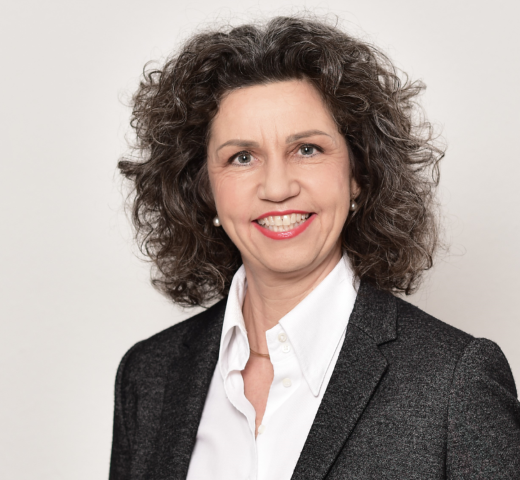
3 Dr Jürgen von Oertzen
Karlsruhe
Political scientist, mediator, trainer
Website: www.einigungshilfe.de
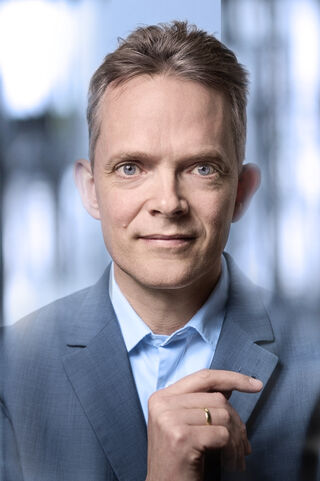
One thing mediators sometimes do is reframing. Or in this case, more precisely, to problematise the hypotheses that are necessarily behind every question. And that is also my concern when I hear this question:
"Russia's war of aggression": I don't want to attribute this war of aggression to Russia, but to Putin and his subsystem. In a recent Spiegel podcast, a military expert even spoke of "the Russians". I don't want to attribute the war ordered by an authoritarian (albeit majority-elected) leader to the entire country with all its people, culture, etc. And certainly not to "the Russian". And certainly not "the Russian" per se - a formulation that shows and promotes compartmentalised thinking, and therefore also war.
"Turning point in time": I still don't understand it. Why is this year's 16th global war, Putin's - according to one count - 4th war of aggression, this particular war of all wars a turning point? On the other hand, it seems to me that Scholz's decision to carry out a huge reshuffle in the federal budget, which none of the parties involved in the government had announced beforehand and which was therefore not authorised by any of the voters, has indeed ushered in a new era. As understandable as this fear reaction is psychologically, and no matter how nonsensical it seems to me in terms of military strategy when it comes to defence readiness against nuclear-armed states, it is remarkable that this sum was determined without any democratic participation. Now that's a turning point!
I also recognise a turning point in the cohesion of many parts of the world and many parts of our society in expressions of solidarity with and practical support for Ukrainians, and in the relatively strong determination to impose financial and economic sanctions. If this works - and it seems that at least some oligarchs are using this economic pressure on Putin and Zelensky to limit the war - what a success that would be, what a model for non-military defence against wars of aggression! That would be a turning point that I would hardly have dared to dream of.
It is a huge challenge for mediators to remain fundamentally cooperative in this social environment, to differentiate between actions and people, to recognise their own fear, but not to be guided by it, and to continue to work for peace between people and between countries.
I think Friedrich Glasl said everything about what needs to be done in detail in the big Trigon interview.
4 Dr Katarzyna Schubert-Panecka
Karlsruhe
Supervisor, Business Coach, Climate and Executive Coach
Website: www.schubert-panecka.eu
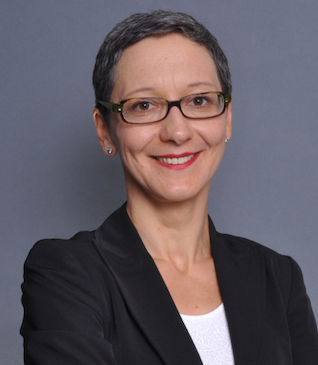
I. What a "turning point" due to the war of aggression could mean for mediation and conflict counsellors and mediators can probably only be answered with a certain distance in time. From today's perspective, in June 2022, the following can initially be said Critical reflection on their own field of activity and repertoire be confirmed. For some, this reflection has long included, for others only recently, the questions of how, when and where
- professional conflict resolution can be offered and carried out by whom (see Maiwald, Professionalisation of mediation 2016)
- mediative attitude can be lived out if it primarily contains a humanistic to pacifist perspective on conflict management, as well as
- which possibilities and limitations of mediation as an option and/or procedure could be made clearer.
Personally, I would "locate" the turning point somewhat differently than 24 February 2022 and view the attack by Putin as a kind of culmination of this, which is also an interesting symbolism. Wars have been taking place around the world and in Europe for many years. However, the conflicts that have been fought in them have seemed less topical and dangerous to many of us than the human – and climatic – catastrophe in neighbouring Ukraine. The currently observable Concern can be explained in various ways. At the same time questions that address our integrity and responsibility, as described insightfully by Froese, for example, with the help of Levinas in the context of mediation. At this point, I would therefore Clarity of your own values and the resulting Claim to integrity as well as dealing with a kind of shattering of certain ideals. Including the question of what could be readjusted in the self-description of mediators and along the plurality of professions as well as the complexity of the problems with which parties seek out mediators. Whether in mediation in specific proceedings or the use of mediation skills in social interactions, as is currently the case with tensions between family members, friends or host families and refugees. This also includes questions such as: What kind of neutrality, multipartiality and limits do we feel towards military actions? Where, with whom and when – these and other questions could be considered in a collegial and preferably interdisciplinary context in order to develop a clearer view and offer.
II For me personally, the attack on Ukraine was also associated with a feeling of setback, with a painful memory and sympathy for history. After almost three decades of personal and professional work on understanding across borders, this was a turning point. At the same time, and because I have been aware of the influence of several crises occurring almost simultaneously in many places for years, I can hardly perceive this as a single trigger for change in mediative action (we have endeavoured to include different perspectives in the mediation perspective). In addition to military conflicts, we are increasingly dealing with conflicts worldwide that follow human action in the context of climate change. Among others. Heatwaves, conflicts over basic resources such as access to water and food (keyword: climate justice), weakening democracies, the vulnerability of many business sectors and much more may still seem far away to some, similar to the wars of just a few years ago. However, they have long since become part of our reality, including in the context of mediation. Whether during conflict resolution for company succession, inheritance or care; whether in B2B or internal company conflicts, whether in the energy transition or dealing with local refugees – in all these situations, the effects of global issues and interconnectivity have long been visible and relevant to our practice. If you take a closer look, you will quickly realise that we are well advised to at least be aware of these influences in the conflict management process. Or - as most international coaching associations, for example, have organised – to formulate the quality and competence standards in such a way that social responsibility is part of the ethical standards (see ICF Ethical Standards and Statement of the Coaching Climate Alliance).
III Last but not least: The people and organisations we support as mediators have to deal with the effects of these crises and other phenomena more or less consciously on a daily basis. What would therefore be useful to include in our repertoire in order to be able to offer sustainable support (without pathologising or diagnosing, but at the same time knowing the effects of these processes on conflicts, see Schubert-Panecka 2022 in mediation moves)?
5th Imke Trainer
Cologne
Mediator BM®
Trainer for non-violent communication
Website: www.rheinmediation.de
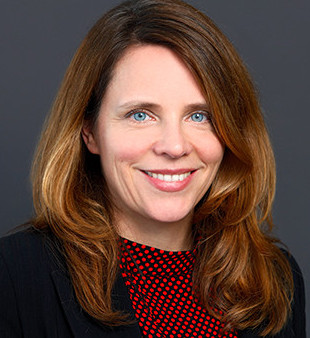
"Life is lived forwards and understood backwards" Sören Kierkegaard (1813-1855)
How do I deal with it?
In times of disorientation, it helps me to feel inside myself and to observe. That's why I concentrate on my perception and summarise what I see, hear and read in the here and now. On social media, in addition to the numerous offers of help and support, I am now noticing more and more posts in which we mediators contradict each other more sharply than usual when it comes to Russia's war against Ukraine. I read that we reproach each other when we comment on the content of our political dealings with Russia. What I think I'm observing is a general struggle among us mediators to find the "right" stance in the face of this war.
And I ask myself: are we already in a parallel process?
In view of the fact that we mediators seem to have already started talking about "right" and "wrong", I draw the conclusion for myself that I wish for two things.
Firstly, role clarity. Am I speaking as a mediator from my professional role or am I making statements as a private person, taking into account my individual biographical view of things?
Secondly, I would like to see mediation and us mediators return to our core competences. And our core competence is differentiated thinking and conflict work. We can and may position ourselves in this war and always (!) in favour of conflict resolution. What view we take, what exactly this conflict work should look like, is up to us and varies from mediator to mediator.
In my view, the questions we are therefore facing in Europe today include the following:
- How can we bring more mediation expertise into the world in future?
- How do we find a suitable political actor on the international stage who can act as a mediator?
- How do we accompany social conflicts triggered by war on our doorstep?
- How do we create space for dialogue to talk about the war so that reconciliation emerges from the conversations?
- How do we gain clarity about which (social) battles we want to fight as people and as mediators?
And quite pragmatically: How do we ensure a practice of self-empathy and self-care in our (Central European) everyday lives so that we continue to fulfil our mission as mediators well and are not infected by the conflict energy that is in the air?
6. dr. Sascha Weigel
Leipzig
Lawyer, mediator, conflict counsellor
Initiator of the Roundup posts
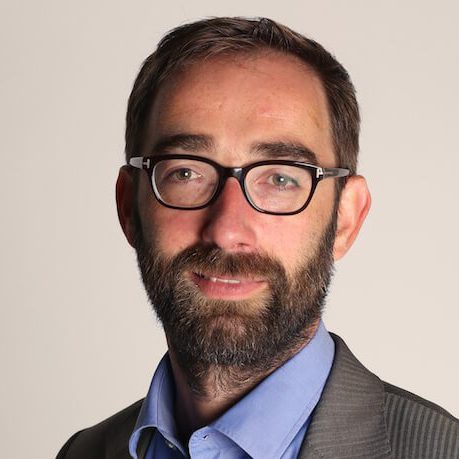
- The long period of peace in Europe is over. The period of the past 30 years, in which mediation was able to arrive and grow in Germany, is finally over. Europe will be – militarily rearmed, especially in the east –. We will have a new, much more extensive wall – and this time in Germany everyone will live and work together to the west of it. This should set the scene for the future of mediation in Germany.
- Paradoxically, there may even be positive developments for mediation. It seems necessary to me that we mediators sometimes have to recognise and (then!) transform serious offences. The juridification and legalisation of mediation (2012) already outraged and disillusioned quite a few mediators, but in 2017, with the evaluation report, which found hardly any mediation activities worth mentioning, large parts of the scene retreated to „methodological inadequacies“ – knowing full well that the core of the data material could hardly be dismissed out of hand. However, a completely different dimension of offence and mental irritation was caused by the Russian war of aggression on the whole of Ukraine, a war that broke out in Eastern Europe by Russia of all countries, which peace-loving Germany had made such an effort to address with mediative ideas and cooperative negotiation approaches (far beyond the level of tolerable security risk!).
- The debate on this has barely begun among mediators. Lines of conflict are likely to emerge here that would shake up and update the generally accepted concept of mediation: What does the freedom and self-responsibility of conflicting parties count for if an aggressor cannot be brought to reason with the means of law and hope? How far does the concept that true interests and actual needs can always be brought to peaceful coexistence – in the face of imperialist interests hold up in reality? Does the mediative view of humanity correspond to reality? Or, in a nutshell: Is mediation an alternative to the law or is it perhaps more of a The flower of lived law?
- It is possible that the mediation movement will emerge from this with a higher profile, stronger and more self-confident. To achieve this, it seems necessary to shed the „faith element“ within the mediation movement in order to be able to live out its context-bound strengths.
- We can only hope that this turning point will not result in a technical debate on suitability 2.0.
7. Florian Winhart
Karlsruhe
Qualified psychologist, certified mediator and transactional analyst, systemic coach
Website: www.piri-piri.consulting

Two aspects come to mind:
1. mediation comes too late -> preventive mediation needs to become much more widely recognised and take effect much earlier. In many cases, we mediators are only called in when the conflict dynamics are already so far advanced that mediation can hardly achieve anything. The basic ideas and prerequisites of mediation must therefore be anchored much more deeply and broadly in social awareness and, above all, in everyday communication. Recognising and addressing conflicts in the first place „ is still not a particularly widespread skill, but it is the basic prerequisite for constructive conflict resolution. At the same time, the limits of mediation need to be pointed out and emphasised more strongly. As in other counselling formats (coaching, supervision, etc.), the steps must be taken by the mediator. If this willingness or ability to do so is not present, mediation must (be able to) withdraw and thus make it clear that the responsibility for dealing with the conflict lies with the conflict parties. Wanting mediation without doing anything about it is also a decision, but should not be supported by the mediator.
2. the Ukraine war as a topic in daily counselling: After years of the subjectively experienced accumulation of disasters, restrictions, wars, pandemics, etc., the resulting stress is much more likely to be a topic in counselling situations (coaching, organisational development, mediation). Managers complain about employees who are affected, employees feel even more alone than usual and even if they are not directly affected by the war in Ukraine, for example, everyone knows someone who is. After two years of the pandemic, many people have exhausted their personal resources and are barely able to cope with further stress – e.g. from a war of aggression on European soil –. In everyday life, this can be seen in many facets – ultimately, these developments have also contributed to the fact that it is becoming increasingly difficult to get an appointment with a psychotherapist. As mediators, we have a responsibility to treat these people with sensitivity and empathy and to organise the process and setting for mediation in such a way that it is not perceived as an additional burden. Rather, mediation can already have a relieving effect here and thus contribute to the subjectively perceived well-being.

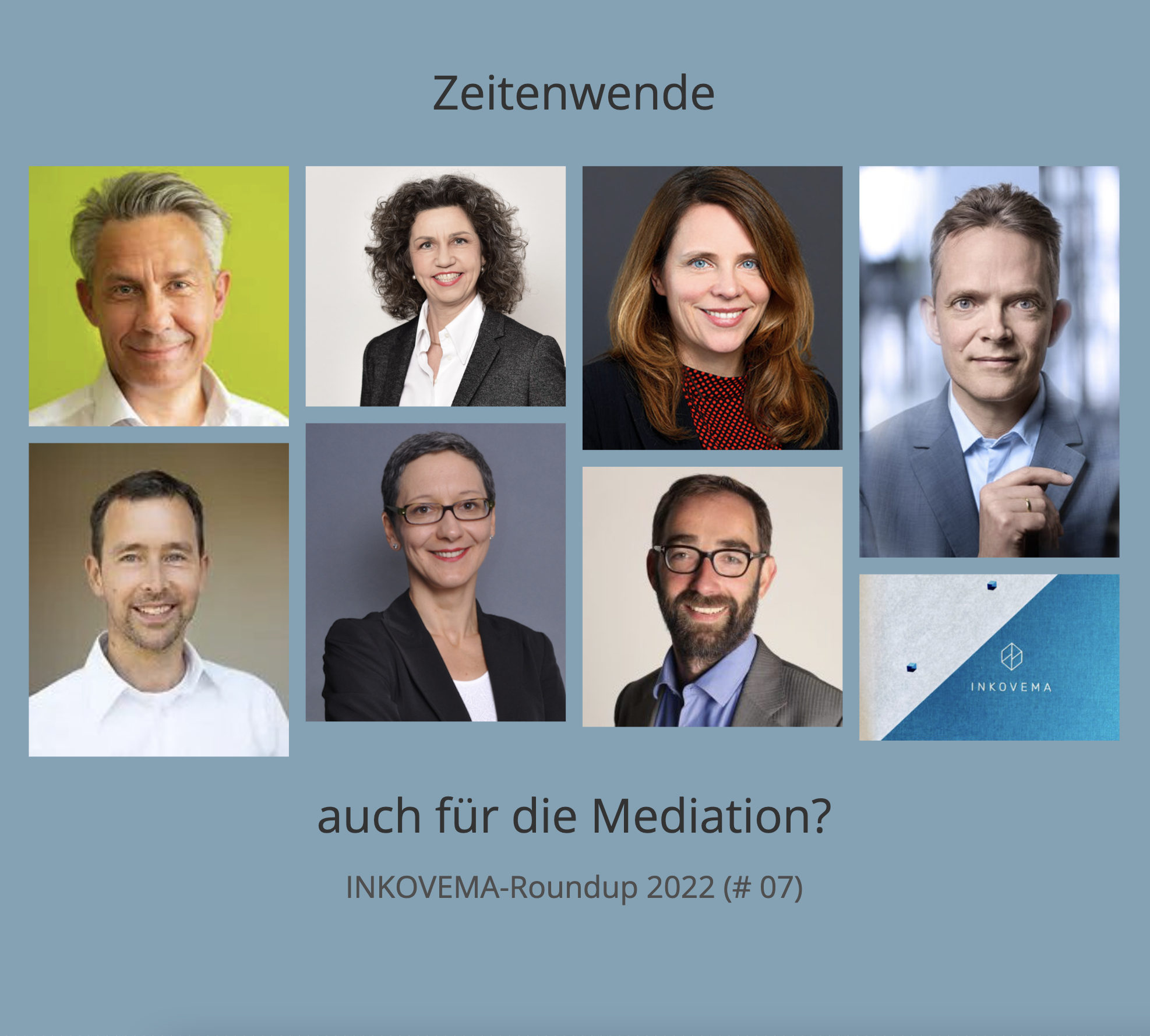


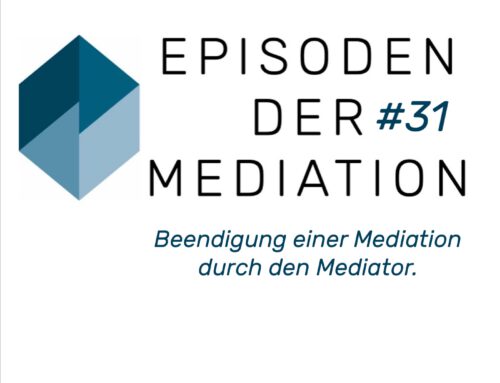
Leave A Comment